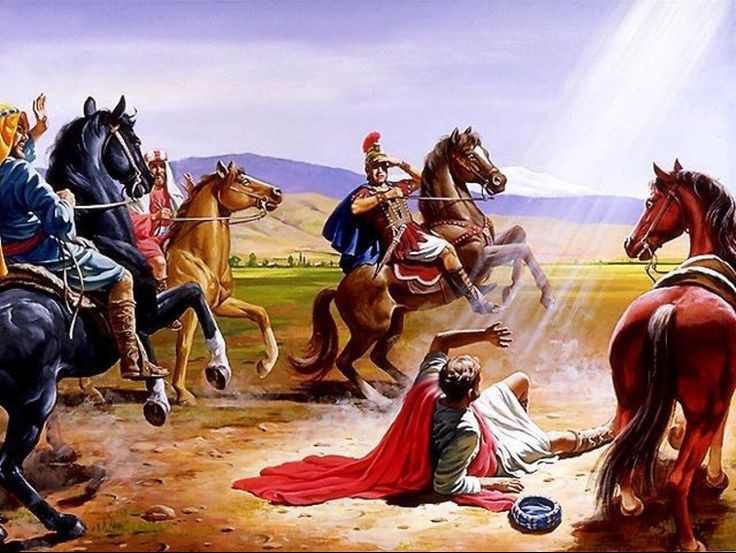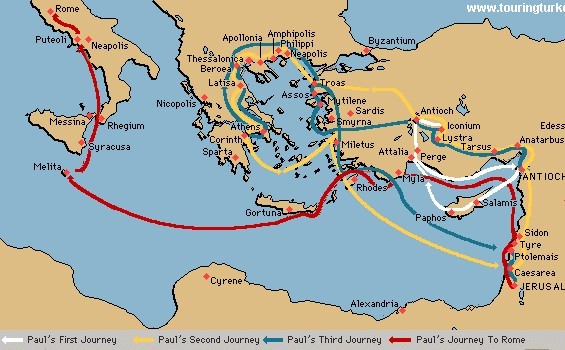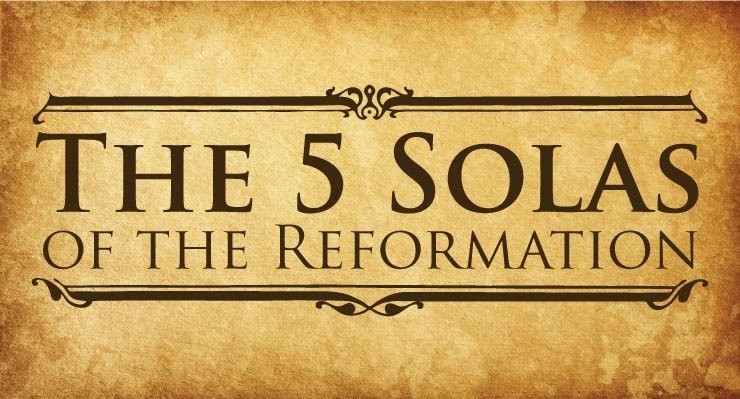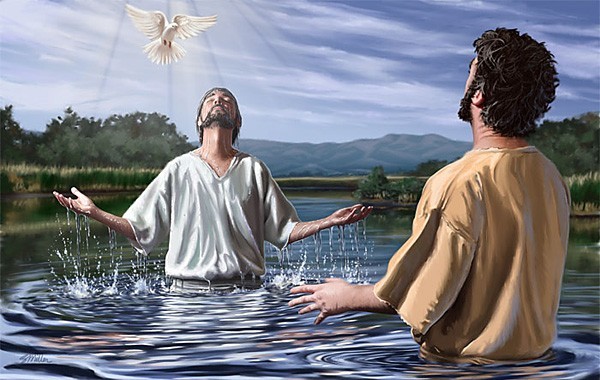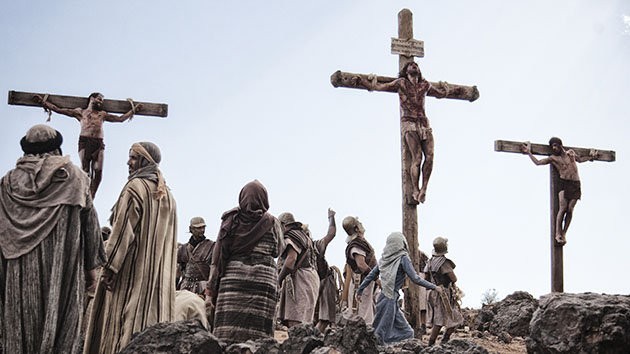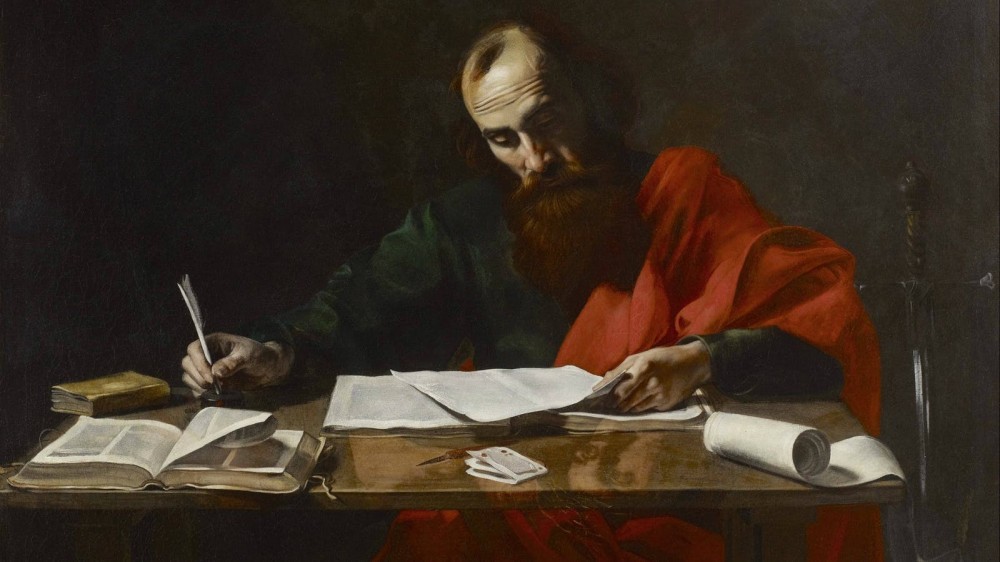
Apostle Paul Biography
No person apart from Jesus himself, shaped the history of Christianity like the apostle Paul. Even before he was a believer, his actions were significant. Paul’s personal encounter with Jesus changed his life. He never lost his fierce intensity, but from then on it was channeled for the gospel. In The Apostle Paul Biography we will give a good idea of what his life was all about.
The Apostle Paul (died c. 66 A.D.), the first systematic theologian and writer of the Christian Church, has been the most influential teacher in the history of Christianity. He was the Christian Church’s apostle to the Gentiles.
Paul, whose original name was Saul or Sh’aul, was born in the town of Tarsus, Cilicia (in modern southeastern Turkey), of Jewish parents belonging to the tribe of Benjamin. Both his parents were Roman citizens.
It is safe to assume that Paul’s earliest language was Koine Greek, the household language of all educated Roman citizens throughout the empire.
Paul was sent at an early age to Jerusalem to attend Bible school. Studying with a famous rabbi, Gamaliel, he learned to write in both Greek and Hebrew and became thoroughly versed in the law. It seems certain that Paul studied in Jerusalem during the three years of Jesus’ public life and that he was present at the time that Jesus was crucified by the Romans.
He may even have seen and heard Jesus preach. He certainly must have heard of Jesus and his movement among the people.
Paul’s Life
Paul lived in the closing days of the Second Jewish Commonwealth. When he was young and studying rabbinic theology, Palestine already lay under complete Roman domination. The Jewish people no longer exercised any real national sovereignty.
The traditional boundaries of Israel, as known from the previous Hasmonaean and Salamonic kingdoms, had been severely reduced. Rome preferred to govern its captive peoples by dividing them into manageable provinces.
By the time Paul had converted to Christianity and was launched on his extensive missionary journeys, affairs in Palestine had taken a turn for the worse. The calm and relative stability that had lasted during the reign of King Agrippa I, was severely shaken after his death. A new spirit of nationalism and revolt against the foreign invader rose among the leading Jewish class, the Pharisees.
Throughout Palestine the younger generation of Pharisees molded the spirit of the people in such a way that the Jewish revolt of 66 A.D. and the consequent destruction of Jerusalem in 70 A.D. became inevitable.
Paul derived from his early education a thorough knowledge of both the oral and the written Jewish law. He also learned of the traditional rabbinic method of scriptural interpretation and commentary. Paul was thus heir to the long, rich, and varied tradition of Pharisaism as it culminated in the latter days of the Second Temple.
Apparently, Paul had gained an outstanding reputation as a young rabbinic student because he was authorized by the Jewish authorities to seek out and prosecute members of a new sect who proclaimed that Jesus of Nazareth was the Messiah and that the Kingdom of God was at hand.
Paul apparently made several trips throughout Palestine in search of Christians. On one such trip from Jerusalem to Damascus, about the year 34 A.D., Paul was completely changed.
Paul’s Conversion
Four accounts of Paul’s conversion exist (Acts 9:3-19; 22:6-21; 26:12-18; and Galatians 1:12-16). According to the essential spirit of these sources, Paul underwent a supernatural experience in which he came to believe that Jesus was actually the Messiah of Israel and that God had called Paul to preach the message of Jesus to all men.
The story adds that he was blinded and forced to fast for three days until a Christian named Ananais laid hands on him and restored his sight, after which he was baptized. The usual date assigned to this event is between 34 and 36 A.D.
Paul spent the next three years of his life in Damascus with the Christians. He then returned to Jerusalem and was accepted by Peter and the other Christians. Paul then went to his home city of Tarsus and spent about six years preaching in parts of Syria and Cilicia.
After a final year spent at Antioch, he and Barnabas were commissioned by the Christian authorities to go to the surrounding nations and preach the Christian message.
Missionary Journeys
Paul undertook three extensive journeys in the eastern Mediterranean region during the next 15 years. At the time Paul undertook his travels, that part of the world was protected by the Pax Romana. Paul had no difficulty in traveling or in communicating.
Throughout the eastern Mediterranean a network of well-guarded and well-preserved roads, serviced by Roman garrisons, connected fortified and prosperous towns. A common language, Koine Greek, was spoken throughout the eastern Mediterranean and was used for all communications
Correspondence by mail was a daily and ordinary method of communication. Furthermore, sea lanes for commerce and for passenger traffic were open between Palestine, Turkey, Greece, Italy, North Africa, and the main Greek islands.
Throughout the eastern Mediterranean, scattered but well-organized communities of Jews existed in all the principal localities. Between these Jewish communities and the central authority in Jerusalem, constant communication was maintained.
The communities of Jews living outside Palestine depended upon the Palestinian authorities for the fixing of the Jewish calendar, the regulation of the Jewish year, the offering of sacrifices in the Temple, and the general authentication of doctrines, scrolls, and teachers.
Until the latter period of his life, Paul moved through these Jewish communities as a Jew. This fact has often been obscured by the later opposition between Paul and the Jews and between Christianity and Judaism.
Only toward the end of his life was Paul not welcome in the synagogues of the Jewish communities. Christians in general were refused entry into synagogues only in the last 20 years of the first century.
Paul’s first journey, which began about 45 A.D., took him through Cyprus and southeastern Turkey; he then returned to Antioch by the same path. On his second journey, Paul went overland through Turkey and then to mainland Greece, passing through Athens and returning to Palestine in the same year through Rhodes.
He landed at Tyre on the shores of Palestine about 52 A.D. During this second journey Paul wrote his two Letters to the Thessalonians. On his third journey, Paul departed from Antioch, again traveled across Turkey, visited Ephesus and Chios, and then proceeded through Macedonia to visit mainland Greece again.
He returned home by sea from the southwest coast of Turkey to the Palestinian port of Tyre. During this third journey, Paul composed his Letter to the Galatians, his two Letters to the Corinthians, and his Letter to the Romans.
Between the beginning of his missionary journeys and his death, Paul wrote a number of letters that later became part of the Christian New Testament. Before, his death he composed a total of 13 letters. A 14th letter, the Letter to the Hebrews, traditionally bearing Paul’s name, is now generally considered to have been written by a disciple of Paul’s.
The Apostle Paul’s teaching rested on three main principles: Jesus was the Son of God and the Messiah foretold by the prophets of Israel; by his death, Jesus had atoned for all men’s sins and opened heaven for humanity; the Mosaic Law had, by the fact of Jesus’ salvation, been abrogated and replaced by the Law of Jesus.
There was, therefore, no longer any distinction between Jew and Gentile. Paul frequently used texts from the Bible to prove his points, interpreting them according to the rabbinic method of exegesis that he had learned in Jerusalem.
Attitude Toward The Law And The Jews
Two outstanding traits of Paul’s writings concern the Jewish law and the Jewish people as the chosen ones of God. His attitude on both points requires explanation. In regard to the law, Paul believed that since Christ had come the law had not been merely changed and ennobled but that it had been abrogated.
Later anti-Semitism fed on Paul’s terminology and concepts in describing the Jewish law, oral and written, as merely an exercise in legalities. No trace of this negative attitude exists in Paul’s writings.
A persuasion is posited that all the nobility of the law and all the salvation promised to the law had been transferred to the new law of Jesus. Paul separated world history into two distinct parts: the time prior to the coming of Jesus, when the law was God’s manifest way of leading men to salvation; and the time after the death of Jesus, when belief in and love of Jesus was the sole means of salvation.
In his later years, Paul probably eliminated any necessity of observing the law. In order to understand his attitude, it is well to remember that the Council of Jerusalem (ca. 49 A.D.) had liberated all Jewish converts to Christianity from any obligation of observing the Jewish law.
As Paul progressed in his teachings, he came up against sterner and sterner opposition from the Jewish authorities. Doubtless, this opposition hardened Paul in his opinion that the Jewish law served only to blind the Jews and possibly the Gentiles to the truth of Jesus.
One constant doubt, however, remained in Paul’s mind concerning his attitude to the Jews as the chosen people. In his Letter to the Romans, Paul declared that the Jews were and would remain the chosen people of God. He asserted this, as he remarked, because God’s decisions are immutable.
On the other hand, as a Christian believer, he maintained that Christians occupied a special place in God’s favor since they had become the carriers of the salvation of Jesus, which had become predominant in God’s scheme for man.
In order to escape this difficulty, Paul resorted to the subterfuge of declaring that the Jews remained the chosen people but that a veil of ignorance had been drawn over their eyes. He declared that this veil would be lifted only on the last day, when the world came to an end and Jesus returned to judge all men.
Teaching Methods
The Apostle Paul’s teaching methods never changed throughout his missionary journeys. In every town he visited, he went to the local synagogue or meeting place of the Jewish community and preached first to the Jews.
He then preached to the local Gentiles. His name however, became known and as his preaching expanded, he encountered greater and greater opposition from the Jewish communities. His preaching then became directed more and more toward the Gentiles.
From both Jews and Gentiles, Paul suffered severe physical and social hardships: being whipped, stoned, imprisoned, treated with indignity, and banished on several occasions. He developed from the beginning of his apostolate a rather acid critique of his former coreligionists, maintaining that in following the law of Moses and in refusing to believe in Jesus they were declining to follow their destiny as the chosen people of God.
Thus, opposition to Paul mounted in the Jewish communities that were outside Palestine, and the message filtered back to Jerusalem that Paul posed a threat to Judaism in the Diaspora.
Final Days
In Jerusalem after his third missionary journey, Paul proposed a trip to Rome and Spain. During his stay he was recognized by certain Asian Jews, who immediately attacked him as a renegade and troublemaker for the Jewish communities.
In the ensuing melee, Paul was saved by the Roman civil authorities who intervened. Paul was arrested as the cause of the disturbance. As a Roman citizen, he was saved from assassination and then transferred to Roman coastal headquarters, Caesarea, where he was tried by the Roman procurator, Felix.
To avoid being sent back for trial in Jerusalem, where he would have received certain death, Paul used his right as a Roman citizen to be transferred to Rome for trial by Caesar. He arrived in Rome after a sea voyage in the spring of 60 A.D.
During the years of his captivity in Rome, he composed his Letters to the Colossians, to the Ephesians, to the Philippians, to Philemon, to Timothy, and to Titus. Little is known of his subsequent life except that he possibly paid a visit to Spain before his death. He was martyred, according to all accounts, sometime in 66 or 67 A.D. in Rome.
The Bible doesn’t explain how the apostle Paul died but, in 2 Timothy 4:6–8 Paul feels that his end is near. This is the life of a man of God that gives us hope that God can use us no matter our past. Let us pray and seek God, Amen.
God Bless,
MyBibleQuestions 
Paul: A Biography
By N.T. Wright / HarperCollins
For centuries, Paul has been one of the church’s most widely cited saints. In this compelling modern biography, Wright offers a radical look at the apostle—specifically illuminating the human and intellectual drama that shaped him. Moving beyond the essence of the man’s life, Wright also explores the extreme unlikelihood of what he achieved theologically. 496 pages, hardcover from HarperOne.
